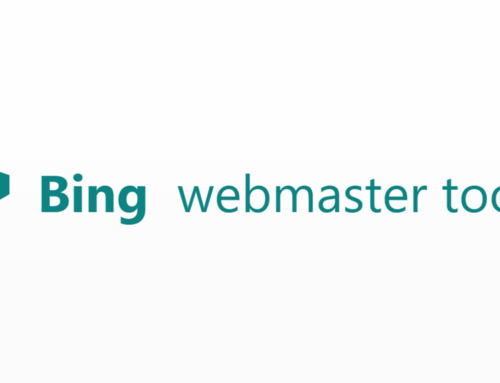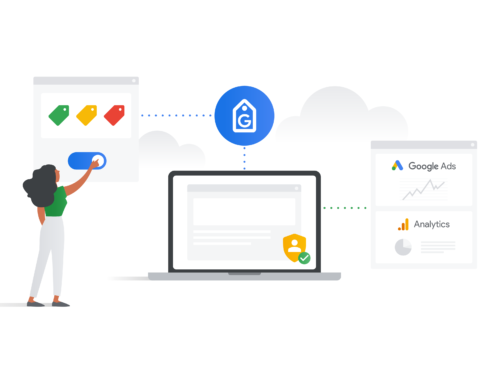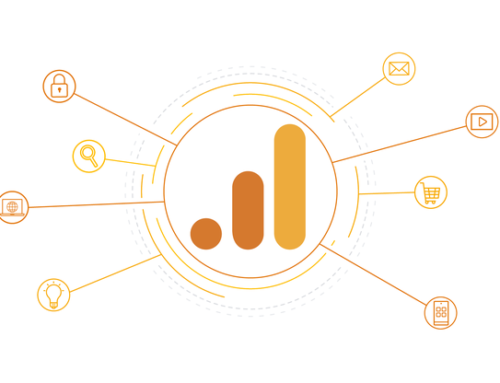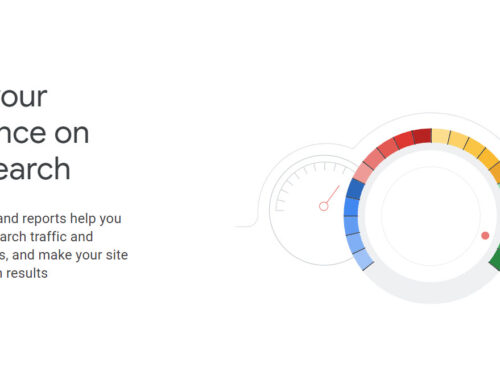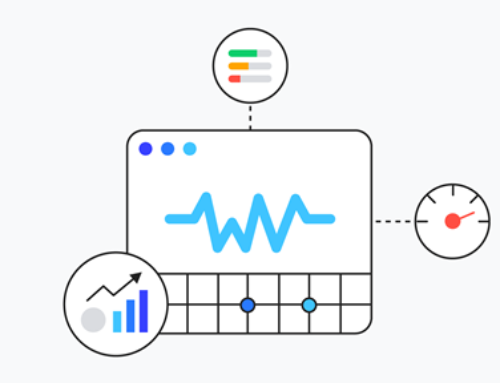Did you know that there’s more to SEO (search engine optimisation) than just keyword rankings? SEO reporting, SEO efforts, and SEO tools are all integral components of any successful online presence. SEO reporting is a fundamental tool for unlocking the potential of a website’s visibility and performance on all search engines.
By tracking and analysing key metrics, such as organic traffic insights, keyword rankings, and user behaviour, SEO reporting offers invaluable insights into the effectiveness of optimisation efforts for your business. For experts in SEO reporting and driving organic traffic through SEO efforts, reach out to Integral Media.
What is an SEO Report?
An SEO report is a document that summarises the performance of a website’s SEO actions. It typically includes data on organic traffic, keyword rankings, backlinks, and other key metrics. SEO reports can be used to track progress, identify areas for improvement, and make informed decisions about SEO strategy.
What Should An SEO Report Include?
- Introduction: The introduction should provide an overview of the website’s SEO performance, including the goals of the SEO campaign and the key metrics that will be tracked.
- Performance metrics: The performance metrics section should include data on organic traffic, keyword rankings, backlinks, and other key metrics. This data should be presented in a clear and concise way so that it is easy to understand and interpret.
- Analysis: The analysis section should interpret the performance metrics and identify areas for improvement. This section should also include recommendations on how to improve SEO performance.
- Conclusion: The conclusion should summarise the report’s key findings and provide recommendations for future action.
Here are some additional tips on creating an SEO report:
- Keep it concise and easy to read. The report should be easy to understand and interpret, so use clear and concise language.
- Use visuals to illustrate your findings. Graphs, charts, and tables can make your findings more visually appealing and easier to understand.
- Personalise the report for your audience. The report should be tailored to the specific needs of the website owner or SEO consultant.
- Update the report regularly. The report should be updated on a regular basis to reflect the latest changes in the website’s SEO performance.
What is the Importance of SEO Reporting?
SEO tools enhance the process of SEO reporting by providing accurate data and enabling comprehensive analysis. This empowers businesses and digital marketers to make informed decisions and identify growth opportunities, ultimately leading to higher search engine rankings and increased organic traffic.
Beyond merely crunching data, SEO reporting tools play a vital role in enabling seamless communication with stakeholders, justifying resource allocation, and encouraging a results-oriented approach that boosts both website health and overall return on investment (ROI). By leveraging SEO reporting tools and platforms like Google Analytics, businesses can gain valuable insights into their SEO strategy’s success, tracking key performance indicators, monitoring keyword rankings, and assessing user behaviour.
Armed with this data-driven knowledge, businesses can continuously fine-tune their SEO strategies, ensuring they stay aligned with ever-evolving search engine algorithms and user preferences. With the ability to generate comprehensive reports, these tools facilitate transparent communication, showcasing the impact of the SEO strategy and building trust with stakeholders. This synergy between SEO tools and the SEO strategy empowers businesses to achieve sustainable growth in the ever-competitive digital landscape.
Understanding SEO Metrics
SEO metrics are crucial indicators that provide insights into the performance and effectiveness of your website’s SEO efforts. They help you gauge how well your website ranks, how much organic traffic it receives, and how users engage with your content.
An overview of essential SEO metrics you should be aware of:
- Organic Traffic: This is the number of visitors who come to your website from search engines. It is a key metric because it shows how many people are finding your website through organic search results.
- Keyword Rankings: This is the position of your website in search engine results pages (SERPs) for specific keywords. It is a good indicator of how well your website is optimised for those keywords.
- Bounce Rate: This is the percentage of visitors who leave your website after viewing only one page. SEO reporting tools that show a high bounce rate can indicate that your website is not providing a good user experience.
- Average Session Duration: This is the average amount of time that visitors spend on your website. Long average session duration can indicate that visitors are finding your content engaging.
- Pages Per Session: This is the average number of pages that visitors view on your website during a single session. A high page-per-session metric can indicate that visitors are finding your content valuable.
- Conversion Rate: This is the percentage of visitors who take a desired action on your website, such as making a purchase or signing up for a newsletter. A high conversion rate can indicate that your website’s SEO performance is effective at converting visitors into customers or leads.
How to Interpret SEO Data Effectively
Interpreting SEO data effectively is crucial for making informed decisions and optimising your website’s performance.
Here are some steps to help you interpret SEO data effectively:
Set clear objectives – What do you want to achieve with your SEO efforts? Do you want to increase organic traffic, improve keyword rankings, or boost conversions? Once you know your objectives, you can align your data interpretation with them
Use multiple data sources – There are many different sources of SEO data, including Google Analytics, Google Search Console, SEO tools, and social media analytics. Each data source provides unique insights, so it’s important to gather data from multiple sources to get a comprehensive view of your website’s performance.
Focus on key metrics – Not all SEO metrics are created equal. Some metrics are more important than others, depending on your objectives. For example, if you’re trying to increase organic traffic, then you’ll want to focus on metrics like organic traffic, keyword rankings, and bounce rate.
Stay updated – Stay informed about changes in search engine algorithms, SEO efforts and best practices, possible new SEO reporting software and industry trends. A constantly evolving SEO landscape requires continuous learning and adaptation.
Navigating the SEO Reporting Dashboard
An SEO reporting dashboard is a centralised platform or tool that provides a visual representation of essential SEO metrics and data. It is designed to simplify the process of monitoring and analysing various aspects of a website’s search engine optimisation performance. The dashboard gathers data from multiple sources, such as Google Analytics, Google Search Console, SEO tools, and other data platforms, and presents it in a user-friendly and easily digestible format.
Key features and components of an SEO reporting dashboard may include:
- Key Performance Indicators
- Graphs and Charts
- Comparison and Trend Analysis
- Data Segmentation
- Competitor SEO Analysis
- Mobile Compatibility
- Customisation Options
- Alerts and Notifications
- Integration with SEO Tools
- Exporting and Sharing
Customisation Options For Tailored Insights
Customisation options in an SEO reporting dashboard allow users to focus on specific metrics and data that are most relevant to their unique objectives and business needs. These options enable users to personalise their dashboard view and access insights that align directly with their SEO strategy.
Here are some common customisation options for tailored insights:
- Metric selection: Users can select the metrics that they want to track in their dashboard. This could include metrics such as organic traffic, keyword rankings, bounce rate, and average session duration.
- Data visualisation: Users can choose how they want the data to be visualised in their dashboard. This could include graphs, charts, tables, and heat maps.
- Viewing period: Users can select the period that they want to view data. This could be a day, week, month, quarter, or year.
- Segmentation: Users can segment the data in their dashboard by different factors, such as keywords, page, or user type. This allows them to drill down into the data and get more insights.
- Filters: Users can filter the data in their dashboard to focus on specific results. This could be used to filter out irrelevant data or to focus on data that is trending.
By customising their SEO reporting dashboard, users can get the insights they need to make informed decisions about their SEO strategy.
Analysing Keyword Performance Reports
When analysing keyword performance reports, interpreting keyword ranking data is essential for identifying keyword opportunities and challenges. Here are some steps to effectively analyse keyword ranking data:
- When analysing keyword SEO reports, focus on monitoring keyword rankings over time to identify trends.
- Look for top-performing keywords and new opportunities with rising rankings.
- Keep an eye on declining keywords and assess keyword difficulty and search volume.
- Explore long-tail keywords for potential high-conversion opportunities.
- Analyse competitor keywords and address content gaps.
- Consider seasonal trends and user intent.
- This analysis will guide your SEO plan, optimise content, and drive organic traffic to your website.
How do Target Keyword Research and Keyword Ranking Analysis Impact an Overall SEO Strategy?
Target keyword research and keyword ranking analysis are two essential components of any successful SEO strategy. By understanding the keywords your target audience is searching for, you can optimise your website content to rank higher in search engine results pages (SERPs).
- Target keyword research involves identifying the most relevant keywords to your website and its target audience. This can be done by using keyword research tools, such as Google Keyword Planner, to explore search volume, competition, and other factors.
- Keyword ranking analysis involves tracking your website’s rankings for specific keywords over time. This can help you to identify which keywords you are ranking well for and which keywords you need to focus on improving.
These are two essential components of any successful SEO strategy. By understanding the keywords your target audience is searching for and tracking your website’s rankings over time, you can improve your website’s visibility in SERPs and attract more organic traffic.
SEO Reporting Tools
There are several successful SEO reporting tools available that can help you monitor and analyse the performance of your website’s search engine optimisation efforts. These tools provide valuable data and insights to track progress, site speed, and search visibility to identify any areas for improvement and make data-driven decisions to enhance your SEO strategy.
Here are some popular SEO reporting tools:
Google Analytics: A free web analytics tool from Google that provides a wealth of data on website traffic, user behaviour, conversions, and more. It is a fundamental tool for understanding how users find and interact with your website.
Google Search Console: This is another free tool from Google that offers data on how your website appears in search results, the keywords driving traffic, and technical aspects like crawl errors and indexation status.
SEMrush: A comprehensive SEO tool that offers keyword research, competitor analysis, backlink analysis, and position tracking. It provides valuable insights to improve your website’s organic search performance.
Moz Pro: Moz Pro offers a suite of SEO tools, including keyword research, site audits, rank tracking, and backlink analysis. It is used by businesses and agencies to improve their website’s search engine rankings.
Traffic And Conversion Tracking Analysis
A comprehensive SEO report will focus on analysing organic traffic trends, as this is an integral part of SEO reporting in understanding how well a website is performing in terms of attracting visitors through search engines. To create a perfect SEO report, it’s important to consider the following key points when analysing SEO trends and organic search results:
Monitor target keywords: Keep an eye on the rankings of your target keywords. Improved rankings for relevant keywords usually lead to increased organic traffic.
Use Google Analytics: This is a powerful tool for tracking and interpreting website analytics. Ensure it is properly set up on your website to collect organic traffic data.
Compare periods: Compare the current reporting period with the previous one to identify any website traffic trends, changes, or improvements. You can also compare year-over-year to understand seasonality or long-term growth.
Explore website performance metrics and channels: Break down organic traffic into different channels such as organic search, direct, referral, social, etc. Focus primarily on organic search traffic, as it directly relates to SEO efforts.
Understanding User Behaviour
An effective SEO report considers all factors, including consumer habits and user behaviours interacting with your content marketing efforts. It’s especially beneficial as it can help with identifying your website’s SEO health and content relevancy or if the site isn’t meeting the needs of your visitors. This can lead to improvements in SEO strategy and SEO services for your business.
For example, if you see that a lot of people are visiting your website but quickly bouncing off, it could be a sign that your digital marketing content is not engaging or that your website is difficult to navigate. By understanding why people are leaving your website, you can make changes to improve their experience and encourage them to stay longer.
Linking SEO Digital Marketing To Conversion Metrics
Linking SEO and digital marketing to conversion metrics is important for SEO reports because it allows you to see the overall impact of your SEO efforts on your website’s traffic and conversions. This information can then be used to make changes to your SEO strategy to improve your results.
Here are some of the benefits of linking SEO and digital marketing to conversion metrics:
- Improve website analytics and optimisation
- Increase in website leads and online traffic
- Improve ROI
The SEO performance measurement to use when tracking and monitoring include:
- Leads
- Sales
- Conversion rate
Backlink and Domain Authority Reporting
Backlink and domain authority reporting are two important aspects of SEO. Backlinks are links from other websites to your website, and domain authority is a measure of how authoritative your website is.
Backlink and domain authority reporting can help you to understand how your website is performing in terms of SEO. This information can then be used to make changes to your SEO strategy to improve your website’s ranking in search results.
What Is Backlink Reporting?
Backlink reporting typically includes information about the number of backlinks your website has, the quality of those backlinks, and the referring domains (the websites that link to your website).
This information can help you to identify which websites are linking to your website and why. This can help you to focus your SEO efforts on those websites to improve your backlink profile.
What’s Domain Authority Reporting?
Domain authority reporting typically includes a score indicating your website’s authority level. This score is based on a number of factors, including the number and quality of your backlinks.
Domain authority reporting can help you see how your website’s authority changes over time. This information can be used to track the effectiveness of your SEO strategy.
Strategies For Building Quality Backlinks
There are many strategies for creating quality backlinks, but it’s important to note that building these types of backlinks takes a lot of time and effort.
Here are some of the more effective strategies to implement during your SEO campaign to build quality backlinks:
- Creating high-quality content
- Guest blogging
- Social media
- Citation building
- Competitor backlink analysis
Competitor Analysis in SEO Reporting
This is the process of analysing your competitors’ websites and SEO strategies to identify opportunities to improve your own website’s ranking in search results. By analysing your competitors’ websites, you can identify areas where your website can be improved.
For example, if you see that your competitors are ranking for a lot of keywords that you are not, you can start optimising your website for those keywords.
Competitor analysis can be done by looking at a number of factors, including:
- Keywords: What keywords are your competitors ranking for?
- Backlinks: How many backlinks do your competitors have?
- Content: What type of content do your competitors have on their websites?
- Technical SEO: How well-optimised are your competitors’ websites for search engines?
Common SEO Issues
Technical SEO errors like poor site speed and broken links are just a few common issues that can negatively impact the overall performance of your website, but there are many more SEO issues that can impact your digital marketing efforts if implemented poorly. These include:
- Keyword stuffing
- Duplicates of content
- Broken links
- Slow site speed
- Poor mobile optimisation
These issues can heavily impact site performance, such as:
- Reduced website traffic
- Low SEO rankings
- Poor user experience
- Increase in bounce rate
- Reduced conversions
That’s why performing a site audit and generating an SEO report is essential to identify areas that need improvement.
How Can an SEO Report Pinpoint and Resolve Problems?
An SEO report can identify and resolve problems by analysing the website’s technical SEO, content, and user experience. The report can identify areas where the website can be improved to boost its ranking in search engines.
Once the problems have been identified, the report can provide recommendations on how to resolve them. By following the recommendations in the report, website owners can improve their website’s SEO and resolve any problems that are preventing the website from ranking well in search engines.
Free SEO Reporting Tools
Some of the best SEO reporting tools are free, and they’re widely popular amongst SEO and digital marketing agencies for SEO client reporting. These SEO reporting services include:
- Google Search Console
- SEMRush
- Ahrefs
- SEOptimer
When deciding which SEO reporting dashboards work best for you, it’s important to consider the certain features that are most important to your website.
However, with free SEO reporting software, it is important to note that there are some limitations with the type of website analytics it can read and it may not be as accurate as a paid SEO reporting tool.
Utilising SEO Reporting For Business Growth
SEO reports are beneficial for business growth because they provide insights into how your website is performing in search engines. This information can be used to identify areas where your website can be improved to improve its ranking in search engines.
By using SEO reports, you can identify areas where your website can be improved to enhance its ranking in search engine performance and improve the user experience of your website. This can lead to increased website traffic, engagement, conversions, and, ultimately, business growth.
Frequently Asked Questions
Reach Out To Integral Media Today
If you’re seeking to unlock the full potential of your online presence, don’t hesitate to reach out to Integral Media for all your SEO report needs.
With our proven expertise, data-driven insights, and tailored recommendations, we’ll empower your business to soar in organic search rankings, drive targeted traffic, and achieve remarkable growth. Contact us today to take your SEO strategy to new heights.










